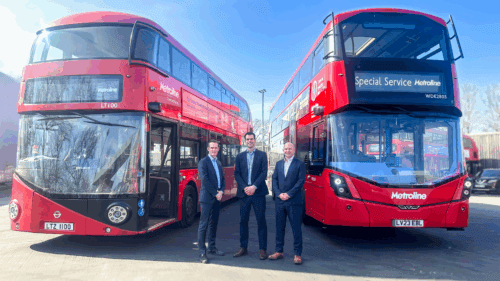
Metroline has announced plans to deploy AI-powered service control software FlowOS Live across its London operations, which it says will be an industry first. The company believes the move will enhance service reliability and consistency, provide more predictable driver shifts, reduce overcrowding during peak hours, and cut passenger waiting times, following a trial at its Edgware garage where the software was tested on several of its most demanding bus routes.
Metroline says it significantly reduced excess waiting time (EWT), a key performance metric used by Transport for London (TfL), collectively saving passengers up to 2,000 hours daily across Metroline’s services in London.
The trial also highlighted the benefit of the software’s support for Metroline control room teams; by automating much of the administrative work they currently undertake to monitor and record incidents, cancellations, and delays on the network, enabling them to dedicate more time to improving service delivery.
FlowOS Live operates by predicting the downstream progress of every vehicle in the fleet and simulating the impact of various adjustments on vehicle progress and spacing. It then identifies and recommends the best instructions to issue to drivers to improve service reliability, punctuality, and speed in any given context, ultimately improving passenger experience. CEO at Metroline London Sean O’Shea believes the impact of FlowOS Live on bus services in London and beyond could be significant. “Metroline is committed to evolving our service delivery and passenger experience,” he said.
“Embedding the AI-assisted software in our daily operations will not only help us to deliver on these objectives but will also support our vision to deliver safe, reliable and sustainable transport to our communities.” Pete Ferguson, CEO at Prospective. io, the company behind FlowOS Live, emphasised the importance of Metroline’s support in the development of the software.
“FlowOS Live is used for critical fleet monitoring and decision-making day in day out. As such it’s been essential to build, test and refine the system with close and continuous feedback from control room staff to ensure that the potential of the technology can be realised on the ground. Working closely with Metroline we’ve been able to ensure that the software’s recommendations are effective, and that the overall system works in a practical context, enabling teams to successfully embed AI in their daily work.” Metroline’s parent company ComfortDelGro says it will also be exploring opportunities to extend the use of AI to its bus operations in Singapore and Australia.

